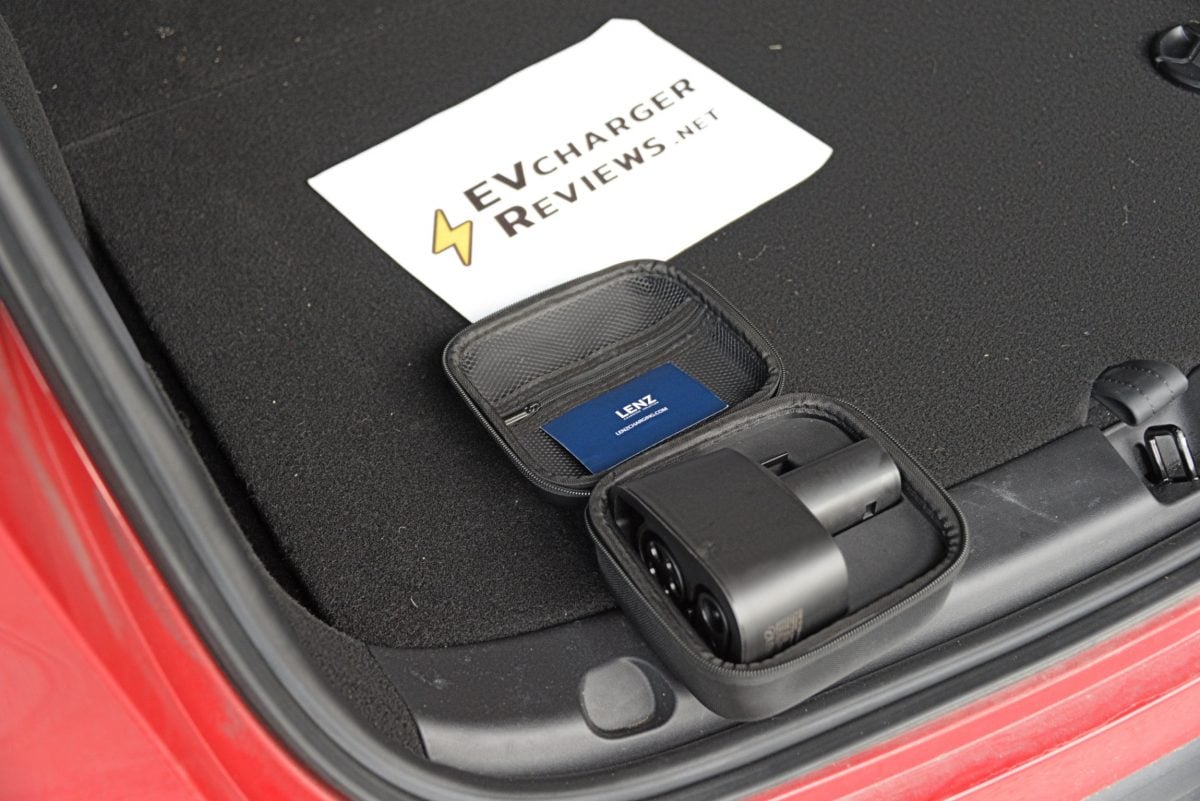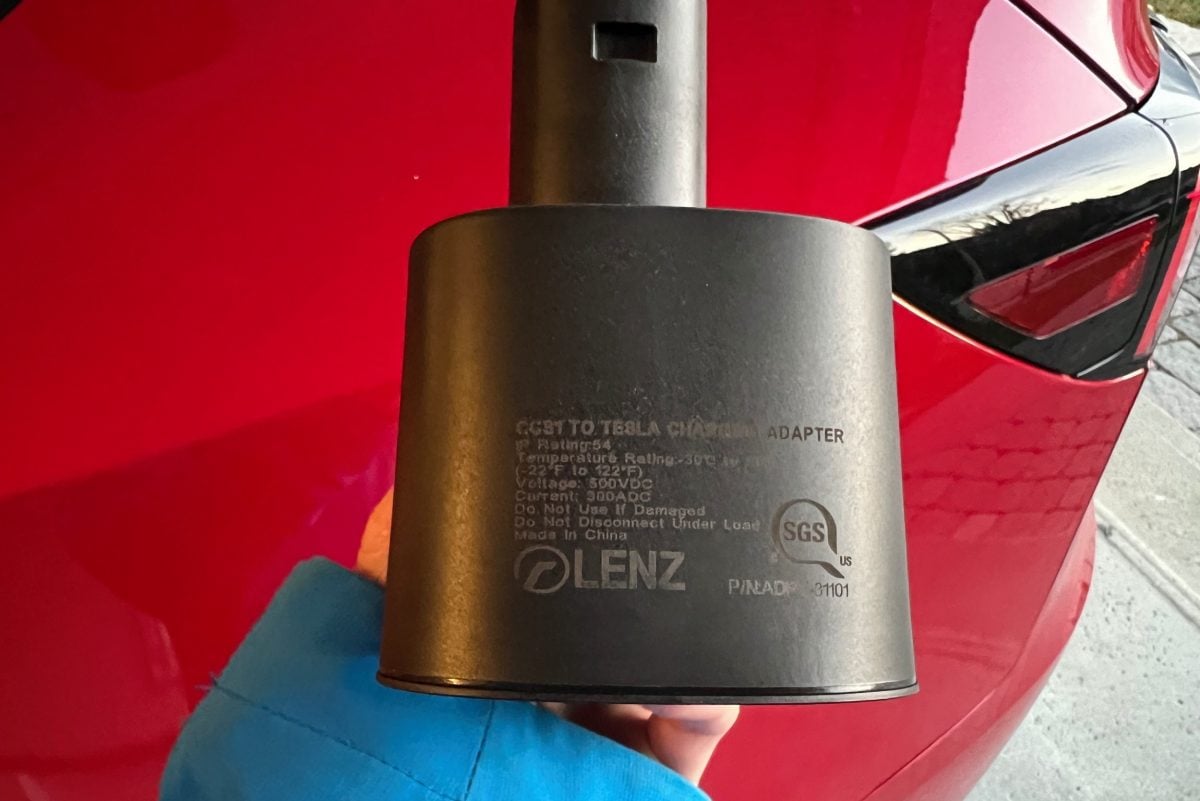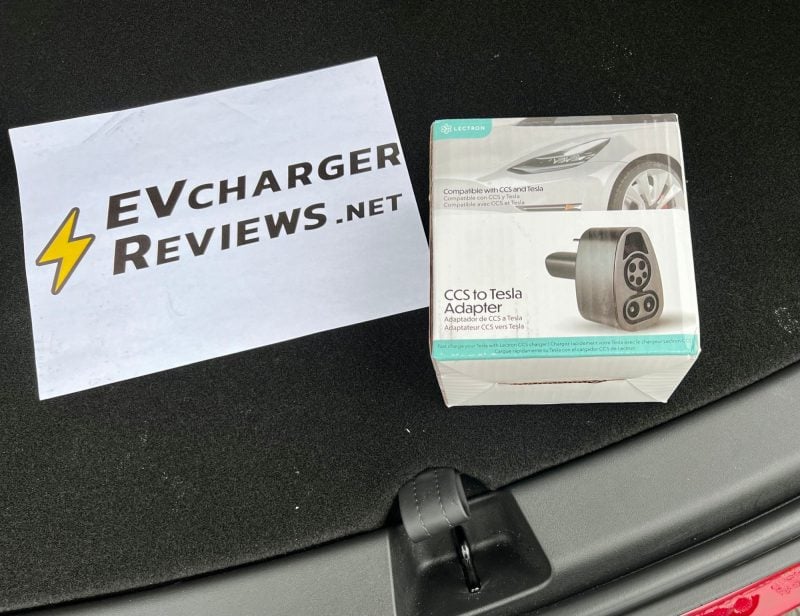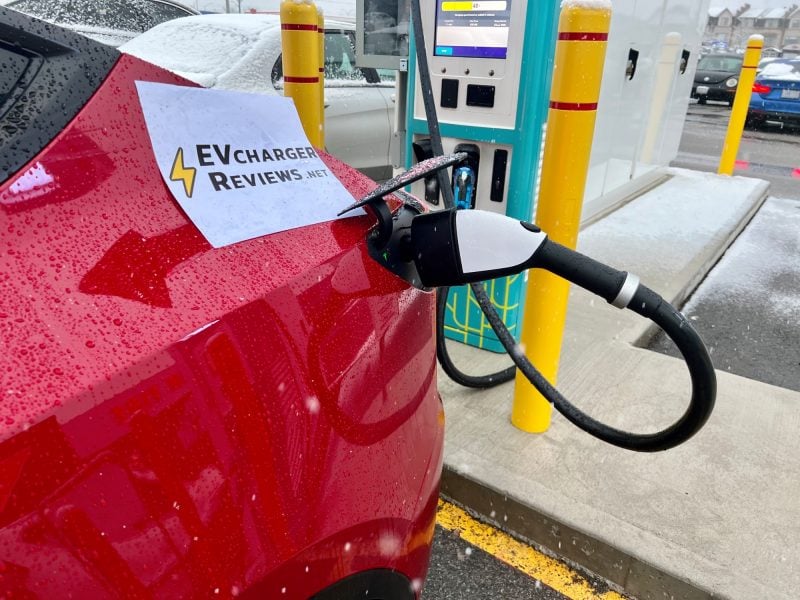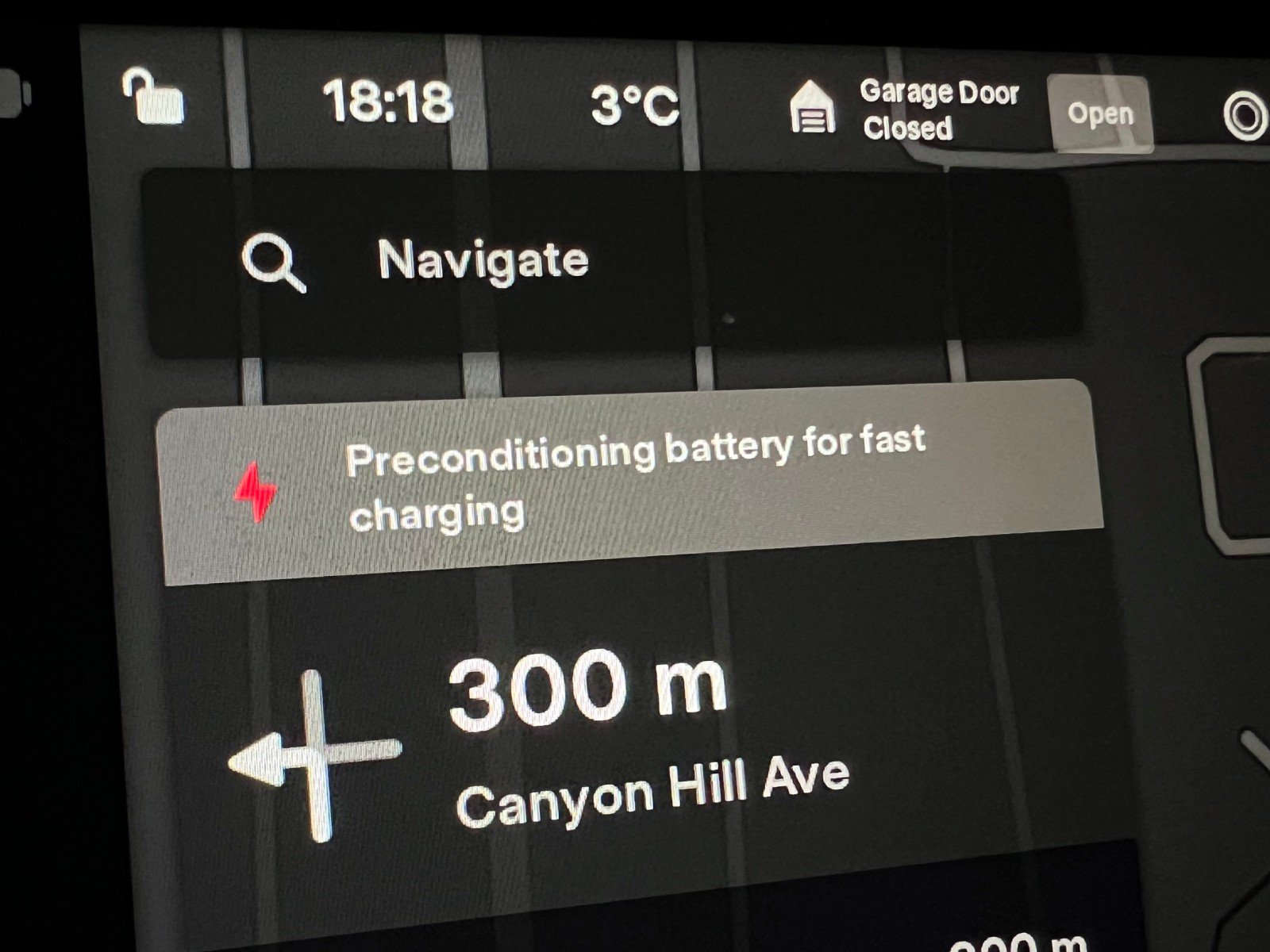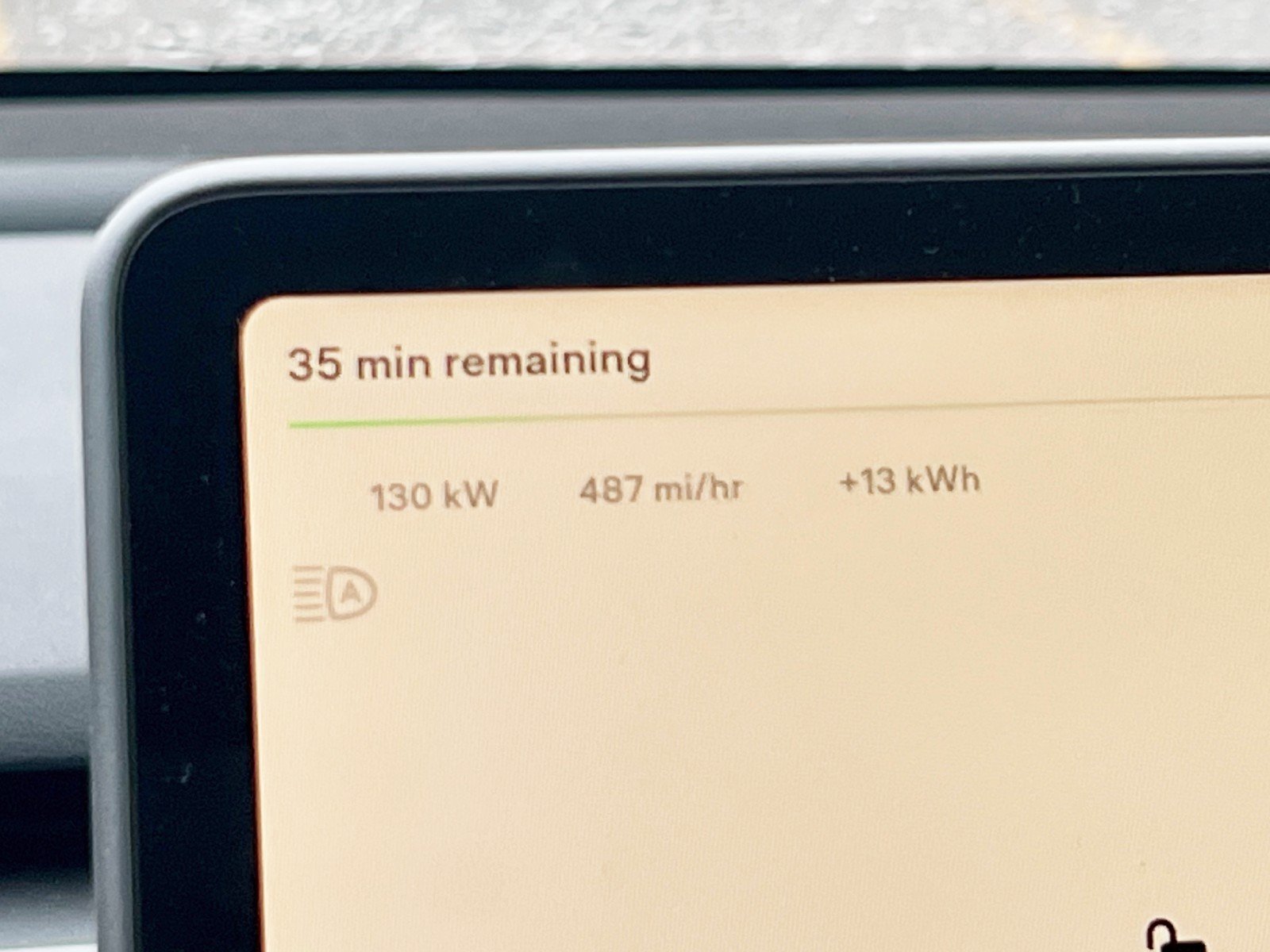EVchargerReviews is supported by our readers. We may earn commissions from links on this page. Why trust us?
Best CCS Adapters for Teslas – How to charge Teslas on CCS in North America
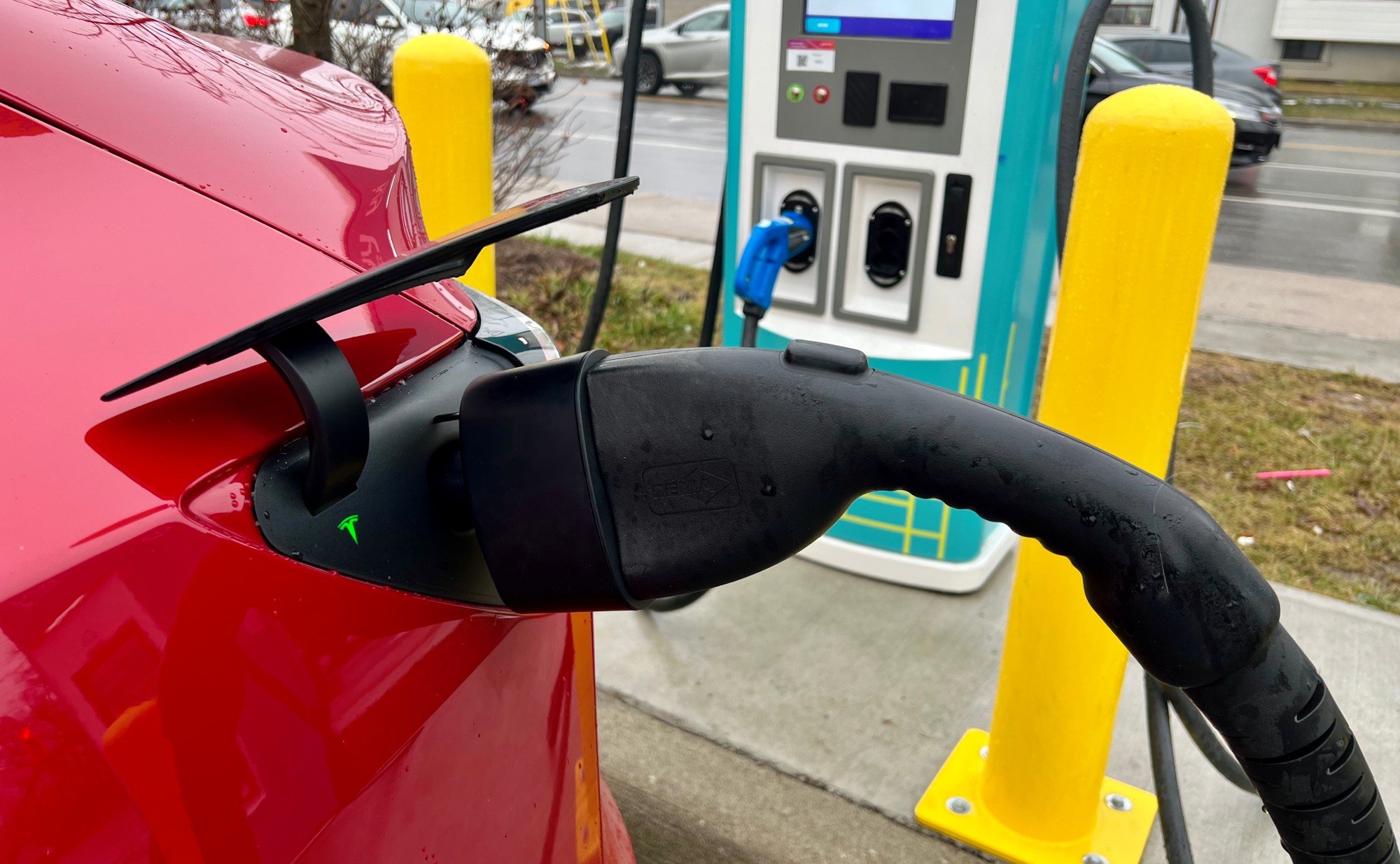
Best CCS Adapters for Teslas
Updated July 6, 2024, by Michael Kim
The Supercharger network has the most number of Level 3 DC fast charging stations and is hard to beat. However, there is a whole industry of competing DC charging networks out there that can offer more convenient locations or better pricing. Tesla cars use different charging connectors from other brands in North America, but it is still possible to fast charge over CCS with the correct adapter.
In the post-2025 future, all new cars in North America will transition to Tesla’s NACS connector, but in the meantime, we will need to keep adapters handy to be able to charge any car at any charging station.
Why trust us? We have hands-on testing experience with the most popular EV charging products.
Prerequisites
Not all Tesla cars can accept energy from CCS chargers. Earlier cars may not have the necessary hardware to communicate over the CCS protocol. You can confirm that your Tesla is compatible by going to the Software menu in your car and tapping on Additional Vehicle Information.
Here you want to see that CCS adapter support is “Enabled”, instead of “Not Installed”.
Teslas manufactured after October 2020 for the North American market should be compatible. But earlier models are potentially upgradable by Tesla Service. A new ECU upgrade is required the car reports CCS as unsupported. CCS compatibility can be retrofitted by Tesla’s mobile service.
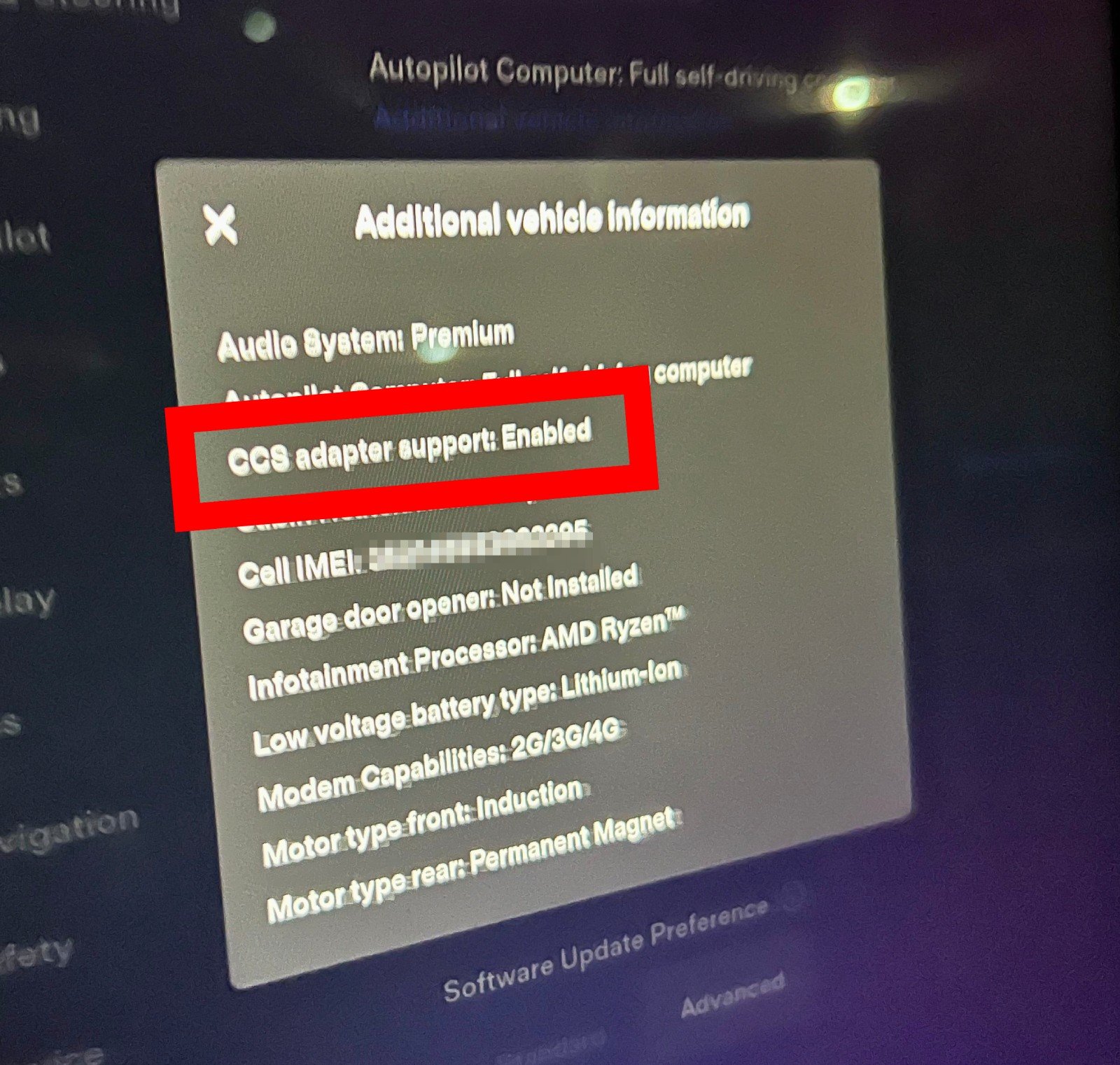
Here are the best CCS-to-Tesla charging connector adapters we tried:
LENZ CCS to Tesla Charger Adapter
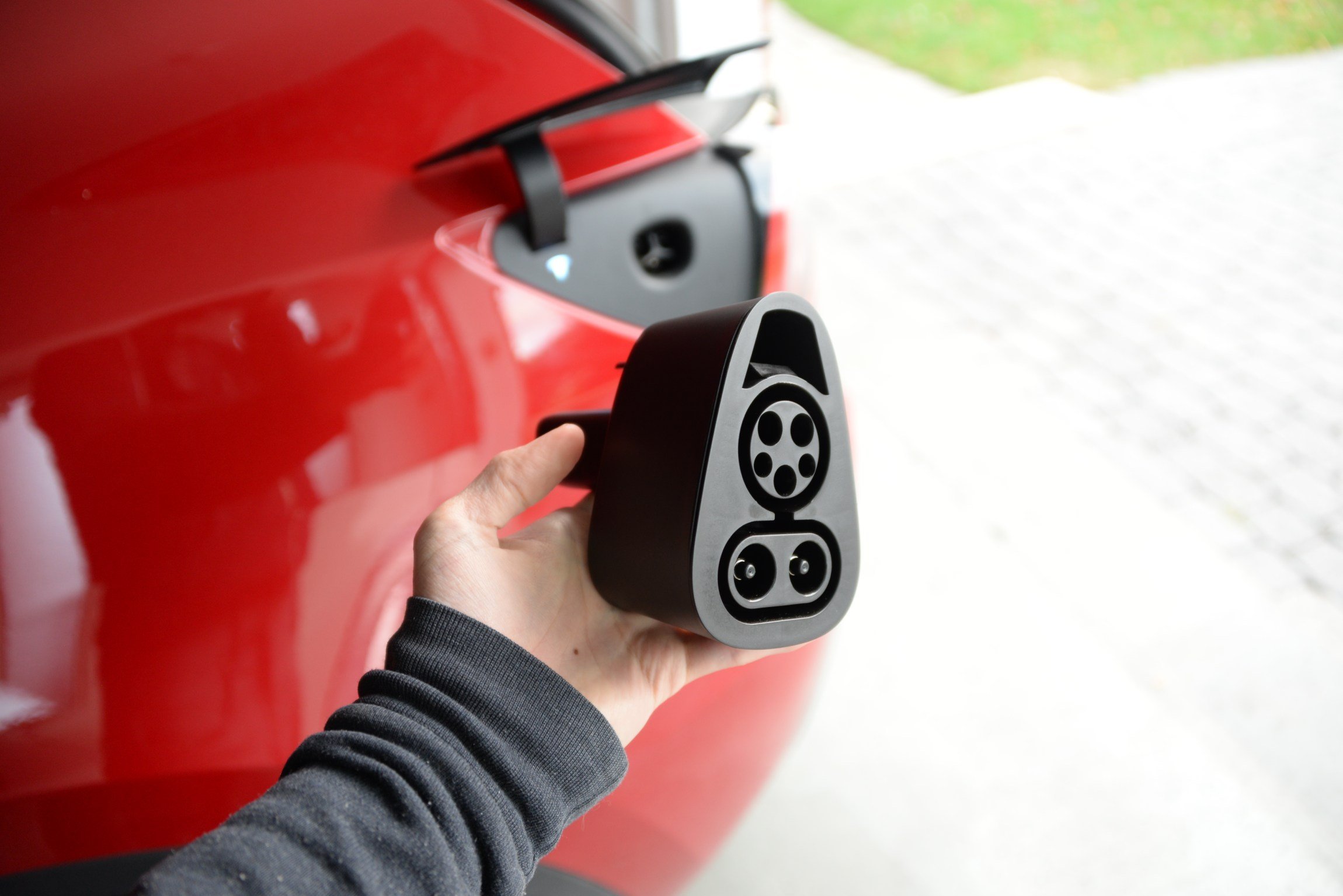
The CCS adapter from LENZ is one of the best-value products in this category. Not only does it exceed required safety specifications, but it can deliver the full 250 kW supported by Tesla vehicles (in optimal conditions). This adapter product felt lighter in weight than competing alternatives and also includes a carrying case to keep the contact points clean while stored in your Tesla.
LENZ is a newer, California-based brand of charging products for EV drivers. We were impressed with their product designs and competitive pricing.
Specs
- CCS1 to Tesla (NACS) adapter
- Up to 250 kW charging speed
- Operating temperature range: -22 °F to 122 °F
- SGS listed to comply with UL 2231
- Includes carrying case
- 2 Year warranty
Lectron CCS Charger Adapter
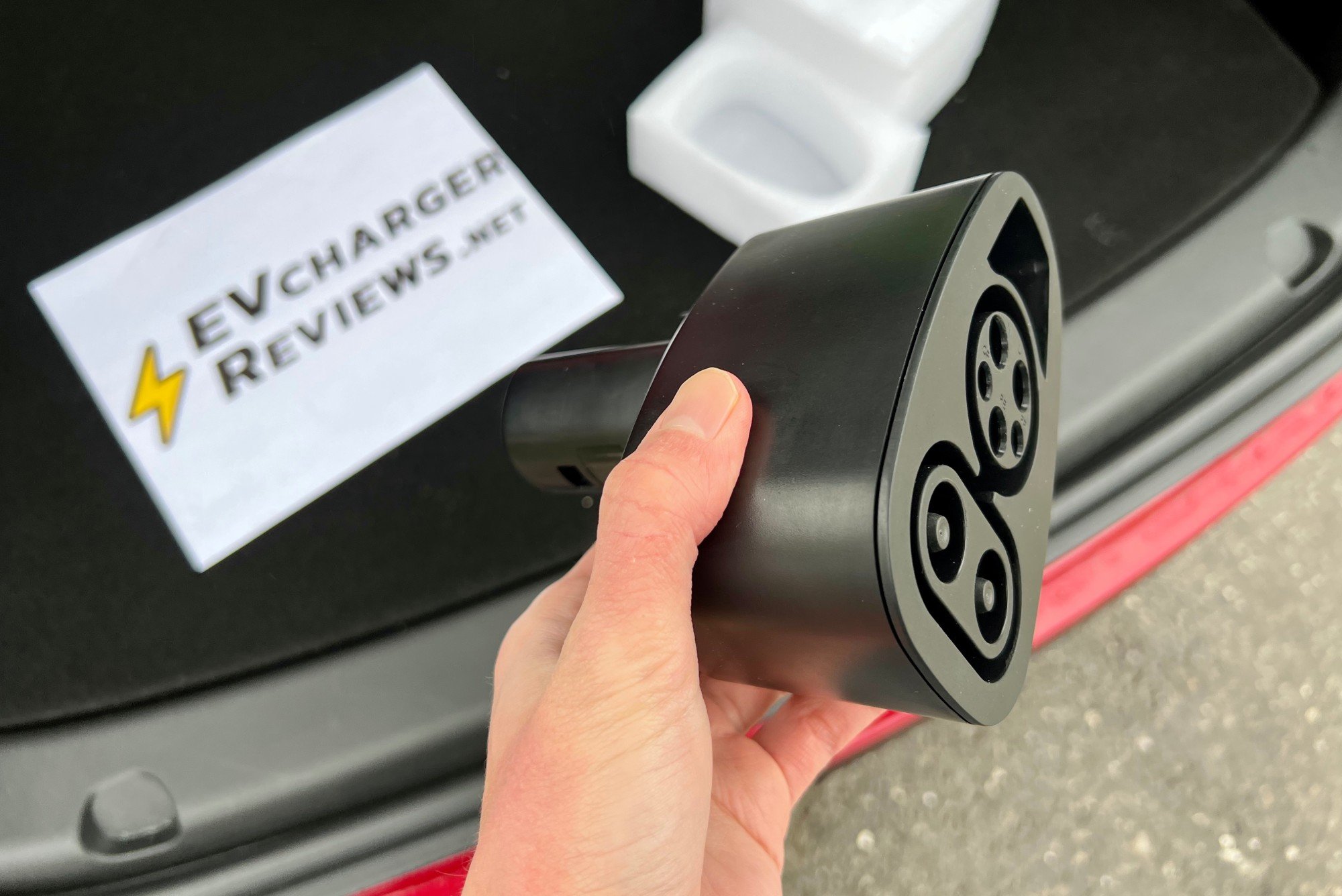
Lectron is a reputable brand in EV charging, and this CCS adapter is another well-built product. A 300 amp limit on this adapter means a theoretical max speed of 150 kW. However, in practice, we have seen a 131 kW peak, because Teslas’ voltage typically hovers closer to 400 volts than 500.
We tested the Lectron CCS adapter at six different DC charging stations, and it has been very reliable. The overall construction feels solid, but the thin plastic stick above the Tesla plug is the weakest point. This thin plastic stopper prevents the adapter from damaging the Tesla charging port. This is the product we decided to keep for daily usage.
Specs
- CCS to Tesla adapter
- 500V and 300A maximum
- 150kW
- Operating temperature range: -22 °F to 122 °F
- IP44 waterproof rating
tesplus CCS Charger Adapter for Tesla
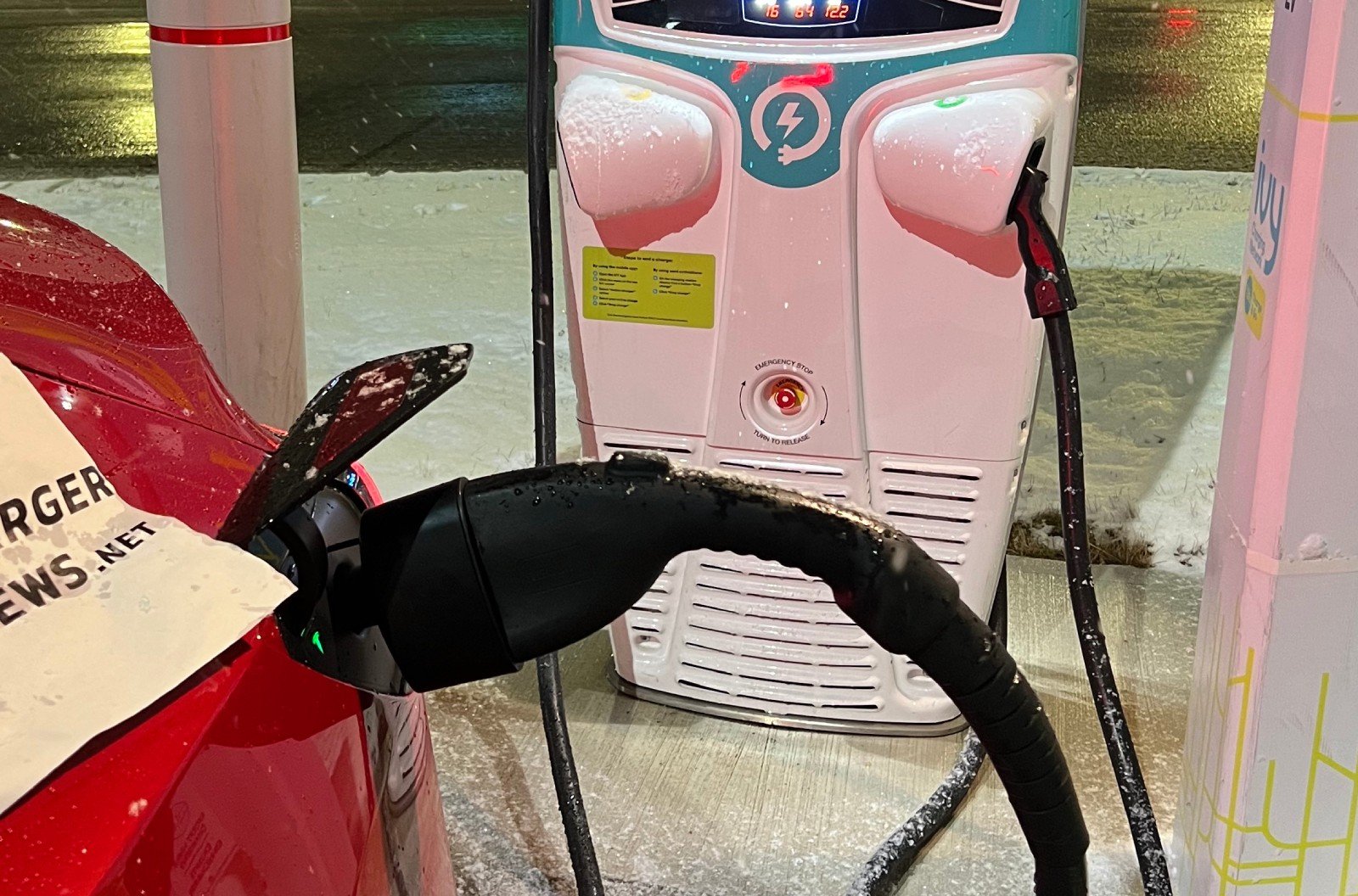
The CCS adapter from tesplus appears visually and functionally the same as the one from Lectron. In fact, we would recommend purchasing whichever product is less expensive on Amazon at your time of purchase. The tesplus adapter has more user reviews, but that is likely because it was listed for longer.
The product description says up to 250 kW, but you are more likely to get ~130 kW in typical usage. CCS supports 250 kW and beyond, but because of the 300 amp limit of this adapter and Tesla being on 400-volt architecture, the user is unlikely to get more than 150 kW in optimal conditions. This is plenty fast! The tesplus CCS adapter has great reviews from other users too.
Specs
- Operating temperature range: -22°F to 122°F
- IP54 water resistance rating, splash and rainproof
- Max power: 250 kW (stated)
- Max amps: 300
Supicon CCS to Tesla Adapter
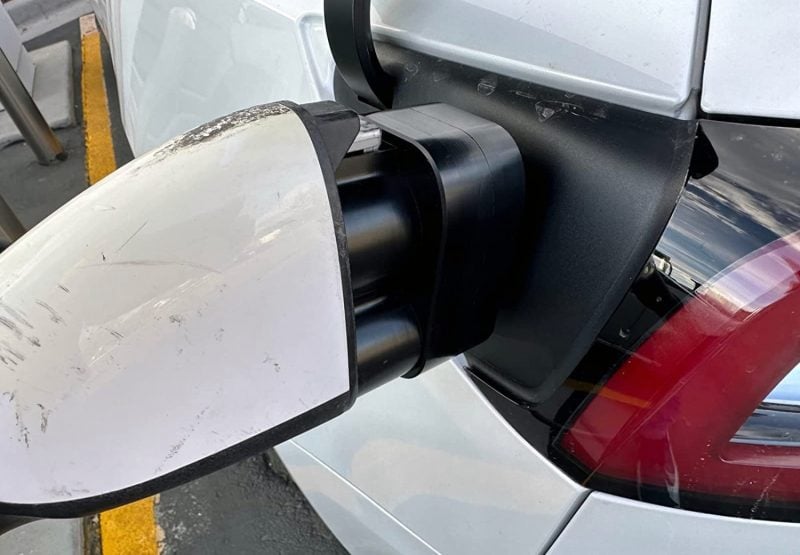
Supicon is another interesting CCS-to-Tesla adapter option on the market. Unlike competing products with 300 amp limits, this one is rated at 400. Users have reported peak charging rates of up to 180 kW as a result. (Note that such peak rates appear only briefly before speeds are throttled down)
Supicon’s CCS to Tesla adapter is often on sale and represents a great value pick. It is compatible with all CCS-capable Tesla models; S, X, 3, and Y.
Specs
- Power: 175 kW
- Max amps: 400
- Operating temperature range: -22°F to 122°F
- IP55 water resistance rating
Honorable mentions
Here are a few more CCS adapters that we didn’t get to test yet, but they have great user reviews:
- HANSSHOW CCS Charger Adapter, 250KW (link)
- LaTough for Tesla Charger Adapter CCS, 250KW (link)
- SEGUMA CCS1 to Tesla Adapter, Max 250KW (link)
- Aowoil CCS1 Charger Adapter Compatible with Tesla (link)
How to get the highest charging speed on CCS with a Tesla?
For an EV battery to charge at the fastest possible speeds, it needs to reach a certain temperature range. (Typically 104° F – 120° F)
When a Tesla car is navigating to a Supercharger, it begins to precondition the battery for fast charging by warming it up. However, there is no option to manually begin to precondition the battery for non-Superchargers. So to get fast charging speeds from CCS EV chargers, the trick is to set the Tesla navigation to a nearby Supercharger, but instead drive to the CCS charger.
Doing this 10-15 minutes before your CCS charging session will warm the battery enough to get 100+ kW or more. This is especially important in colder weather in freezing temperatures because a cold battery would not be able to accept much more than ~40 kW for the first few minutes of charging.
And just as with Superchargers, you will need to arrive with a relatively low state of charge percentage to get the maximum speed. Aim to arrive at a DC fast charger with 10-20% remaining and a warm battery pack to get the most efficient and fastest charging session.
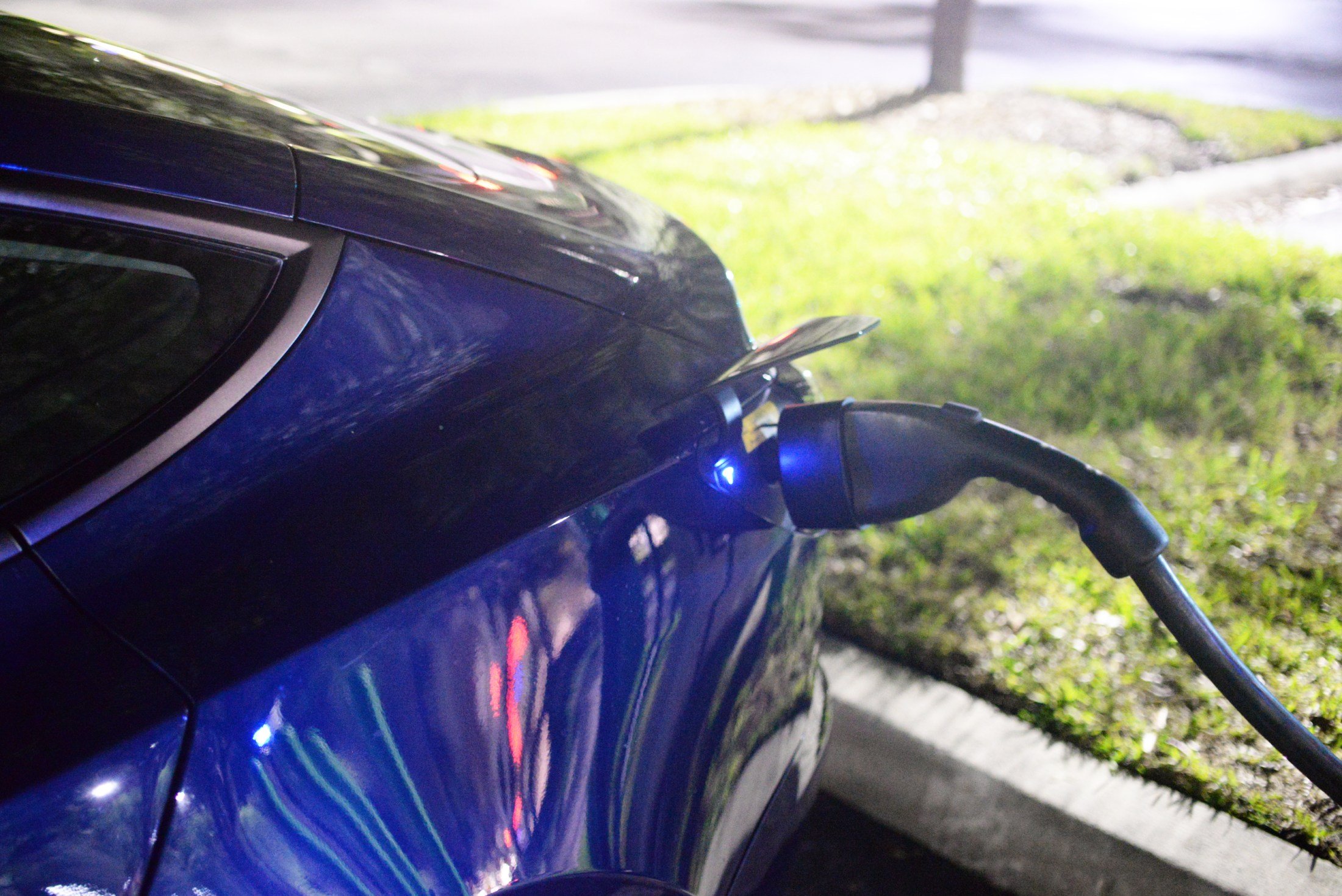
Frequently Asked Questions about charging Tesla on CCS
Can you charge a Tesla at Electrify America stations?
Yes. Electficy America stations use CCS connectors at their ultra-fast Level 3 chargers. So if you have a CCS to Tesla adapter you can take advantage of their growing network. Their CCS charging machines are usually at least 150 kW, with newer “hyper-fast” chargers being capable of up to 350 kW.
Can you charge a Tesla at ChargePoint charging stations?
Absolutely. ChargePoint has a large nationwide network of level 2 chargers that can charge Tesla with the included Tesla-to-J1772 adapter. ChargePoint also has a smaller number of Level 3 DC fast charging stations that are compatible with Tesla using one of the Tesla-to-CCS adapters mentioned in this guide.
What is NACS?
NACS is short for the North American Charging Standard. It is the new name for the previously proprietary Tesla charging connector found on Tesla cars. In 2022, Tesla had open-sourced their EV connector and made it openly available to other brands of EV manufacturers. Now any car maker and any EV charging station builder is free to use the NACS connector without paying royalties.
The benefit of NACS connectors versus alternative CCS connectors is that a single elegant connector can be used for Level 1 (120v), Level 2 (240v), and Level 3 DC (400v) charging. For this reason, the NACS connector is poised to become the dominant connector in North America for EV charging.

